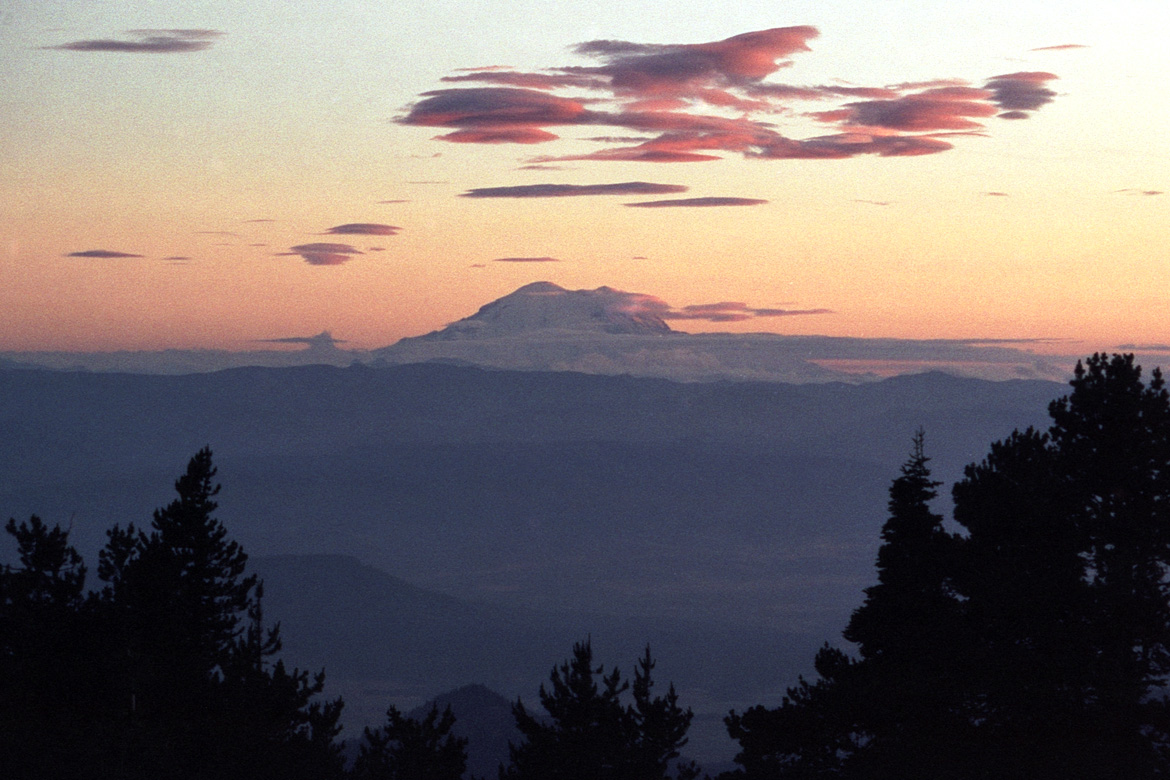
The last night on the mountain provided the best and most prolonged views of the night sky. The clouds were gone, but the dew conditions were awful.
The temperature had dropped to the thirties, but the dewpoint was in the forties so the air could no longer hold water vapor as part of its gaseous mix. The H2O had to go, and the way this happens is for it to condense on any nearby cooler object. Just like a cold glass of iced tea collects moisture from the humid summer air, cool natural surfaces like leaves and blades of grass will collect dew when their temperature drops below the dewpoint. The lenses and mirrors of telescopes are no different; they will collect a fog of moisture when the temperature drops and will cloud over; the view will be obscured.
The solution is to keep the optics warm, above the dewpoint temperature so that the surfaces stay clear. It’s the same principle as defogging your car’s windshield and is done by wrapping heating wires around the most vulnerable eyepieces and lenses. I had purchased some commercial “dew heaters” for this purpose and had also made some of my own from electrical resistors and Velcro straps. A twelve-volt battery powered these gadgets on nearly all of my optics, but the unheated secondary mirror in my telescope was not protected, and it eventually succumbed to the night’s moisture conditions. My photography came to a halt.
With my own telescope shut down, I sought the company and optical performance of the seasoned astronomers in the telescope field. The gentle cacophony of sounds in the field was comforting, and I again enjoyed views of the sky through larger, and dew-free instruments, finally returning to my tent at 5:00 am.
I woke up a few hours later to the excited report that a telescope had caught fire! Someone had left their telescope aimed low to the horizon, on the ecliptic (the path that the sun makes through the sky). As the sun rose, it climbed gradually to the exact position that was focused on the eyepiece holder. There are not many materials that can withstand a one-foot diameter magnifying glass aiming the sun onto it, and the result was smoke pouring out of the big tube as it started burning!
An observant bystander noticed the smoke, took action, and turned the telescope away from its unintended subject. The flames subsided, and the owner will never make that mistake again. Neither will the rest of us that heard about it.
I made many acquaintances at this event. Most of the attendees were from the nearby population centers of Seattle and Portland and were quite outgoing and friendly. The Pacific Northwest style seems to be one of appreciation for wilderness and outdoor activities combined with an easy manner quite compatible with my Midwest upbringing. It has been a very pleasant experience.
I met my new friends Mark and Carrie on this last morning. Mark had spent a good part of the previous night working on getting some pictures from his CCD imaging sensor. After he set up, completed his alignment, focus, and tracking, and taken some trial exposures, he realized that he had just spent the last few hours looking at a computer screen. What he really wanted to do was to look directly at his subjects, and so he put his imaging equipment away, put his eye to the telescope, and pursued the pleasures of direct, visual observing for the rest of the evening.
This was just another story confirming to me the importance of actually seeing things visually, yourself, with your own eyes. That experience just can’t be replaced by a computer screen representation of what’s at the eyepiece.
As I packed up and headed down the now-familiar forest road, I was in “traffic”, meaning that a number of cars were going down with me in an informal caravan. It was unlikely that there would be vehicles heading upstream today, but even so, I was glad not to be in the lead. The sky was clear and as we worked our way down, the open turns revealed an impressive view of Mount Rainier; in fact, it was so spectacular that everyone in the caravan slowed down to take a lingering look. It was a great visual memory to finish this chapter of my Nightscape Odyssey.


Pingback: 2.4 Dinner and a Moonset | Thor's Life-Notes
Pingback: Glacier Park | Thor's Life-Notes